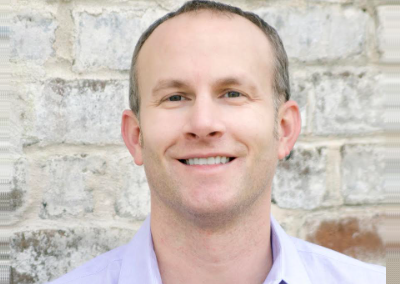
More buildings will be constructed in the next 20 years than in the past 100, and their extensive environmental impacts will be locked in for generations. Recognizing this timely opportunity and responsibility, Green Badger Founder and CEO Tommy Linstroth set out to break down the barriers holding companies back from designing and erecting greener buildings.
Using his background and experience in sustainable construction, Lintroth identified outdated tech and processes in green construction that wasted hundreds of hours and massive budget on tedious, repetitive tasks. Today, nearly 10 years later, Green Badger has grown into a robust software platform used across thousands of projects and five countries to help automate sustainable construction.
Some of the world’s largest builders trust Green Badger to facilitate their sustainability efforts, including gathering and submitting documentation for green certifications like LEED, and tracking important Environmental, Social, and Governance (ESG) data. With today commemorating Earth Day, in this Q&A Tommy highlights what is driving sustainability in this important market.
Q: What is Green Badger and what is its role in driving sustainable building & construction in Georgia and beyond?
A: Green Badger’s mission is to make sustainable construction accessible, attainable, and effortless for the entire construction industry. We have helped more than 1,700 construction teams, including nearly 10,000 total platform users, reduce their workload, simplify complicated processes through automation, and reduce the hassle and cost of green construction solutions.
But Green Badger’s sustainable construction software is just one facet of our approach. We’re also helping to educate builders, removing some of the myths or old beliefs about sustainability, the assumed costs, and making it easier to link sustainability to profitability. We share an extensive library of free resources project team managers can draw from, and we regularly speak across the country to trade groups bringing greater awareness to the means to easier sustainable construction.
Q: How did you get started in founding Green Badger?
A: I’ve been involved with sustainable design and construction my entire career. I started on the owner’s side as Director of Sustainability for a development company and then ran a sustainability consulting firm before starting Green Badger. I’m a huge proponent of transparency and third-party verifications like LEED but I’ve seen too many projects drop sustainability goals because the certification process can just be awful.
After pounding my head against the wall too many times and seeing 100-column spreadsheets in my sleep, I created Green Badger’s software to eliminate the issues that come with the actual certification process. We like to say that Green Badger is the TurboTax of LEED and ESG automation, making complicated headache-inducing tasks easier and faster so teams can focus on the real work.
Q: Why is 2024 a critical time for builders to have sustainability top of mind?
A: Every time is the right time to thoughtfully consider the oversized, lifetime, global impacts our buildings create. As we watch climate change leave its mark, we’ve simply run out of room to spare. In fact, we’re likely way behind and to catch up we need aggressive action, including more sustainable construction practices. The great news, and I’m optimistic about this, the technology exists, there’s growing demand for its use, and companies no longer have to exchange profitability for sustainability.
Q: What are some of the best practices that building and construction firms can do to achieve sustainability?
A: There are a growing number of green building certifications available, LEED from the U.S. Green Building Council being the oldest and most widely used, and I urge owners and construction firm CEOs to empower their teams to explore the options. Appoint a sustainability champion, give them authority to identify opportunities, and watch how it can open doors for new work. They won’t have to look far to find reports about the growing demand for sustainability, ESG reporting, and increasing regulations for green construction.
Sustainability can feel overwhelming, but don’t let perfection be the enemy of progress. Many companies stall because they haven’t ironed out every detail. The key is to take that first step! Start small and build from there. Remember, inaction has consequences too. You don’t have to wait for a project with an owner requirement like LEED – you can start initiatives like construction waste recycling on every project, not just those with a third-party certification.
There may even be things they can implement on current projects that could make a difference with little or no impact on budget. On Green Badger’s website, we keep a lot of quick reference materials, host monthly free webinars, etc. to help teams ramp up and shorten the learning curve.
Q: What are some of the sustainability practices and metrics your own company puts in place?
A: Our core product helps construction projects reduce their environmental footprint, and we proudly follow those same principles in our own business.
We’ve achieved carbon neutrality for four years straight by cutting down on emissions and offsetting the rest. We’re also excited to continue growing our partnership with One Tree Planted! We plant 10 trees for every project team that uses Green Badger, and so far, we’ve accounted for more than 16,000 new trees!
We also encourage our employees to be sustainable at home. We provide them with things like LED lightbulbs, ergonomic workstations, and home composters. In 2023, Green Badger launched a dedicated committee tasked with finding ways to make our company operations even more sustainable, with a focus on employee health and well-being and we’re pursuing our JUST certification from the International Living Future Institute.
We’re fortunate to have gathered a team truly dedicated to our mission and they each take our purpose out into their communities through individual volunteer work. We highlighted some of those accomplishments and more details about our corporate efforts in our 2023 Sustainability Report.




